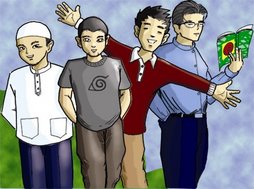Vivian Wai-yin Kwok, 09.18.07, 11:28 PM ET
HONG KONG - The government is trying to turn back the clock on China’s auto boom this week. It is asking people in 108 cities to walk, bike and ride on public transport instead of driving cars. Then on Saturday, the government won’t be asking – it will be an order.
On "No Car Day," one or more special zones in the 108 cities – including Beijing, Shanghai and Tianjin – will be open only to pedestrians, bicycles, taxis and buses from 7 a.m. to 7 p.m. The environmental campaign, initiated by the Ministry of Construction, aims at saving 33 million liters of gas, cutting 3,000 tons of emissions a day and, above all, raising environmental awareness, state-run China Daily reported Monday.
The weeklong campaign will be repeated every year around the same time, Qiu Baoxing, vice minister of the construction authority, told China Daily.
Once a rarity, there are currently about 50 million vehicles galloping across . They accounts for a third of the country's fuel consumption and the proportion is estimated to hit 57% by 2020, making auto emissions the main source of air pollution in China, followed by coal.
In the first eight months of this year, 5.69 million motor vehicles were sold nationwide, 25% more than the same period last year. In August alone, passenger vehicle sales were up 27% from the same period last year to 481,300 units.
Big cities such as Beijing and Shanghai are the biggest polluters. There are 100,000 new vehicles hitting the streets a year in the capital, and about 30% of commuters there now drive every day.
The four-day citywide partial vehicle ban trialed by Beijing’s government last month reduced air pollution levels by 20%.
The central government is drafting a timetable to impose taxes on gasoline, diesel and kerosene, China Business News reported earlier this month, citing an unnamed official at the Ministry of Finance.
Langgan:
Catat Ulasan (Atom)






Tiada ulasan:
Catat Ulasan